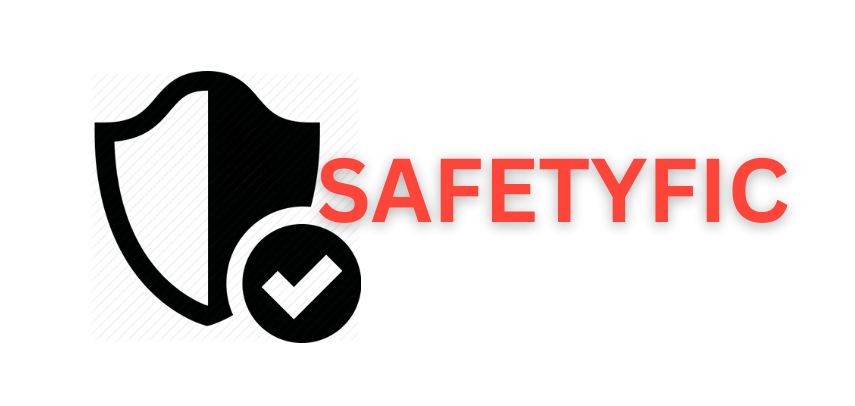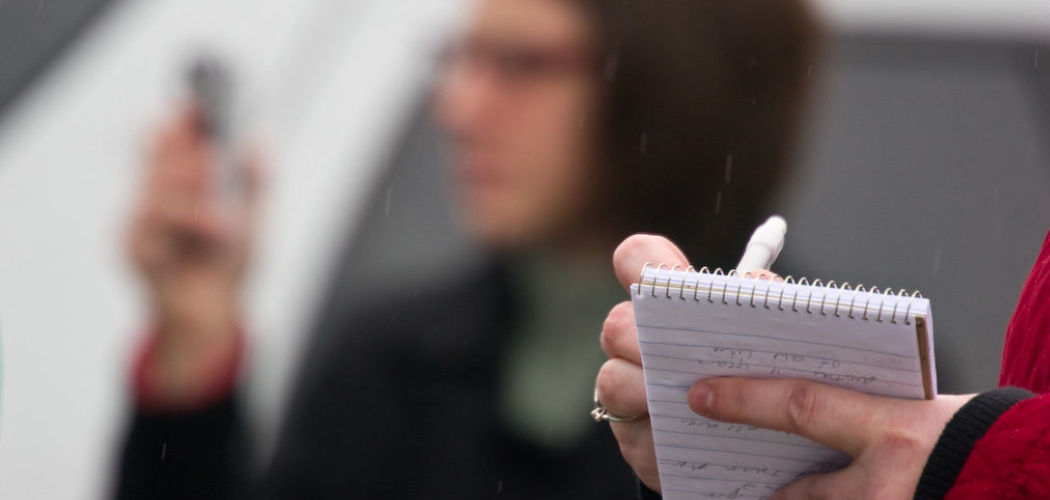Once upon a time, hiring a private investigator was something reserved for novels and movies. However, with the rise of technology and increasing privacy concerns, more people are turning to private investigators to gather information on individuals or businesses.
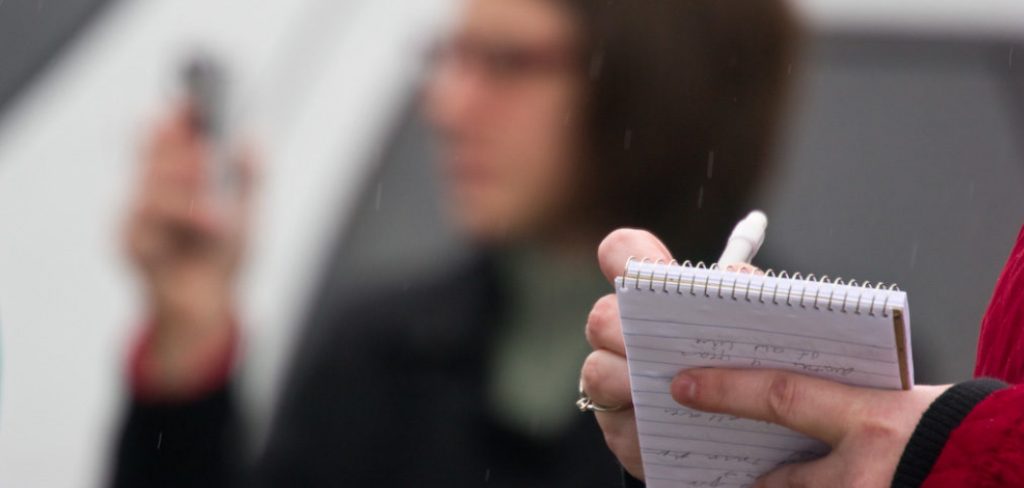
How to know if someone hired a private investigator can be a discreet method to gather information about someone without their knowledge.
However, there are certain signs and behaviors that can indicate if a PI has been engaged to observe or investigate you. Understanding these clues can help you stay aware and protect your privacy.
In this guide, we will discuss key indicators to watch out for, common tactics used by private investigators, and steps you can take if you suspect someone has hired a PI to gather information about you.
Why Should You Be Concerned?
Before we discuss the signs of someone hiring a private investigator, it’s important to understand why you should be concerned. While the use of PIs is legal in most countries, there are still potential risks and ethical concerns associated with being under surveillance or investigation without your knowledge or consent.
Some common reasons for hiring a PI include:
- Gathering evidence for legal cases such as divorce proceedings or child custody battles
- Conducting background checks on potential employees or business partners
- Investigating insurance fraud or suspicious claims
- Monitoring a partner’s activities suspected of infidelity
If you suspect someone has hired a PI to gather information about you, it’s important to take appropriate steps to protect your privacy and security.
10 Easy Steps on How to Know if Someone Hired a Private Investigator
Step 1. Notice Unfamiliar Vehicles
One of the most common signs that someone might have hired a private investigator is the presence of unfamiliar vehicles in your neighborhood or around places you frequently visit.
These vehicles might appear at odd times or be parked for extended periods. Take note of the make, model, and license plate, and see if you notice the same vehicle repeatedly. PIs often use different cars to avoid drawing attention, but vigilance can still help you identify patterns.

To be more discreet, private investigators may choose inconspicuous vehicles that blend in well with the environment, such as common sedans or SUVs. They might also change vehicles to throw off suspicion. Sometimes, they may also use rental cars.
It’s important to observe the behavior associated with these vehicles. For instance, a car frequently parked near your home, workplace, or where you run errands might be a red flag, especially if it is occupied by someone taking notes or seems to be following you.
If you suspect a particular vehicle, you can note when and where you see it and compare these notes over time. You might also consider mentioning it to your neighbors or local business owners, who could help you keep an eye out.
Step 2. Spotting the Same Faces
Another telltale sign of a private investigator is the repeated sighting of the same individuals in places you visit regularly.
If you notice unfamiliar faces appearing in various locations such as your local grocery store, gym, or favorite coffee shop, their presence might not be coincidental. These individuals might attempt to blend in by dressing in common apparel or engaging in activities that match the setting.
To determine if someone is following you, pay attention to the behavior and frequency of these encounters. It could be worth noting if a person seems out of place or appears overly interested in your actions. Observing and documenting these encounters can help you identify patterns over time.
Step 3. Unusual Phone Interference
Private investigators might employ electronic surveillance techniques, such as phone tapping or GPS tracking.
f you notice unusual interference during your phone calls, such as static noises, echoing, or sudden disconnections, it could indicate potential monitoring. While these issues can sometimes be attributed to technical problems, persistent interference might warrant further scrutiny.
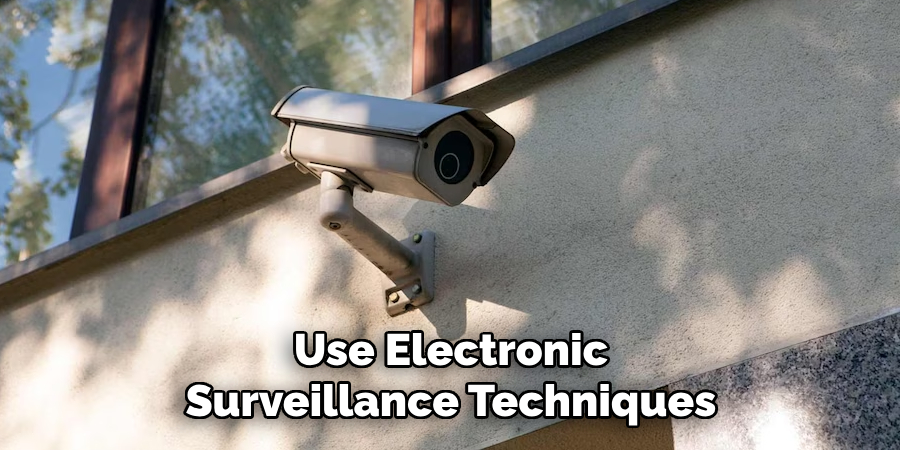
Step 4. Peculiar Online Activities
With increasing digital surveillance, PIs may also monitor your online activities. Suspicious emails, friend requests from unknown individuals, or unusual login attempts on your social media accounts can be red flags. Regularly checking and updating your privacy settings can help you protect your online presence.
Step 5. Mail Tampering
If you observe signs of your mail being tampered with, such as opened envelopes, resealed packages, or missing mail, it could indicate that someone is trying to gather information about your correspondence.
Mail tampering is illegal, but it remains a tactic some private investigators use. As soon as you notice any suspicious activity, document it and report it to the authorities.
Step 6. Being Followed or Watched
Feeling like you are being followed or watched can be unsettling, but it is a significant indicator of surveillance. Notice if vehicles follow your route, strangers seem to appear wherever you go, or if people are watching your home from a distance. Trust your instincts if something feels off.
Step 7. Increased Social Media Scrutiny
Private investigators often utilize social media to gather information. If you notice an influx of requests from unfamiliar profiles, seemingly random comments on your posts, or your personal information being shared without your consent, it could indicate PI activity.
Keeping your profiles private and being cautious about accepting friend requests can mitigate this risk.

Step 8. Unexpected Questions from Acquaintances
Be aware of acquaintances or even strangers who suddenly show an unusual interest in your personal life. For example, they might ask detailed questions about your schedule, relationships, or financial status. These inquiries might seem harmless, but they could actually be used by investigators to gather information indirectly.
Step 9. Alerts from Security Systems
If you have home security systems, unusual activity or frequent alerts can indicate surveillance. Check for any tampering or unexpected maintenance issues that could suggest someone is trying to gain access to your private spaces. If you have concerns, contact your security provider for assistance.
Step 10. Consult a Professional
Consulting with a professional security expert or legal advisor could be beneficial if you have multiple reasons to believe that a private investigator is monitoring you.
They can offer specific guidance on protecting your privacy and dealing with any findings. Remember, if you have not engaged in any illicit activities, a private investigator should not be able to gather any incriminating information about you.
By staying vigilant and recognizing these signs, you can take steps to safeguard your privacy and address any concerns about being under surveillance.
5 Additional Tips and Tricks
- Receiving Unsolicited Communication: Unexpected emails, texts, calls, or mail that seem irrelevant or ask personal questions might be attempts to glean information. Be cautious when responding to unfamiliar contacts.
- Increased Background Checks: If you’ve recently applied for jobs, housing, or memberships and multiple background checks are performed, it might indicate someone is trying to dig into your history beyond standard procedures.
- Electrical Interference: Professional-grade surveillance equipment can sometimes cause interference with household electronics. Unexplained static on phone calls, fluctuations in internet connectivity, or disrupted TV reception might suggest monitoring devices in proximity.
- Keep an Eye Out for Tailgating: If you notice a car following you too closely or suspiciously, take note of the make and model. Private investigators often tail their targets to gather information about their whereabouts and habits.
- Surveillance Tactics: Be aware of your surroundings when in public places. Look out for people who seem to be observing or taking photos of you. It’s also wise to check your home and vehicle for any signs of tampering or hidden cameras. PIs are trained in surveillance techniques, so vigilance can help identify if someone is attempting to track your movements.
5 Things You Should Avoid
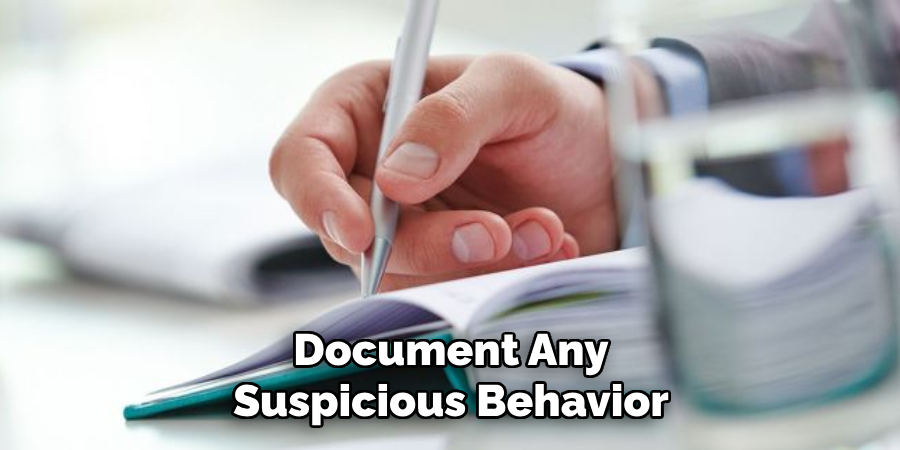
- Confronting Suspected PIs Directly: Approaching or confronting someone you suspect might be a private investigator can escalate the situation and potentially compromise your own safety. It’s better to document any suspicious behavior and seek legal counsel for the next steps.
- Sharing Too Much Information Online: Oversharing personal details on social media platforms can give investigators easy access to information. Avoid posting your daily routines, location updates, or any personal information that can be used to track or profile you.
- Neglecting to Secure Your Digital Devices: Leaving your phones, computers, and other digital devices unsecured makes it easier for surveillance tactics to invade your privacy. Implement strong passwords, enable two-factor authentication, and regularly update your security settings and software.
- Ignoring Uncommon Changes Around You: Overlooking subtle signs such as unfamiliar vehicles parked near your home or office or people who appear frequently in different locations you’re in, might make it easier for an investigator to blend in and observe you unnoticed.
- Acting Out of Paranoia: Drastically changing your behavior out of fear can draw unnecessary attention and stress. While it’s important to be cautious, maintaining your usual routine and demeanor while taking discreet precautions is a more effective approach to safeguarding your privacy.
Conclusion
In conclusion, how to know if someone hired a private investigator to monitor you requires keen observation and critical thinking.
You can recognize the signs of potential surveillance by being aware of unusual communications, excessive background checks, electronic interference, and tailgating. Additionally, staying vigilant in public places and noticing any tampering with your property are essential steps.
On the flip side, avoiding direct confrontation, limiting the information you share online, securing your digital devices, and not overlooking uncommon changes in your surroundings can help protect your privacy.
Remember, while it’s vital to stay cognizant of these signs, it’s equally important not to let paranoia dictate your actions. Being cautious and taking discrete measures ensures a balanced approach to safeguarding your personal space and privacy.
